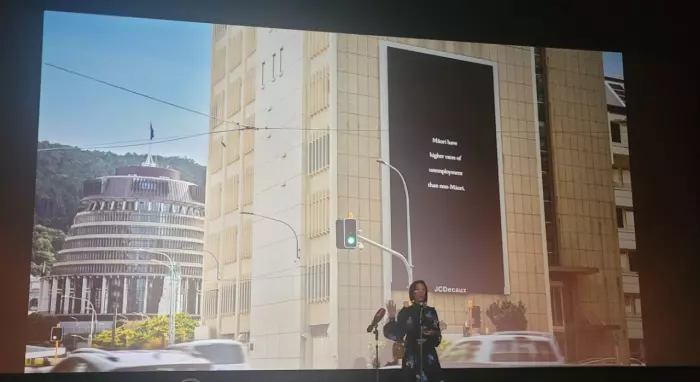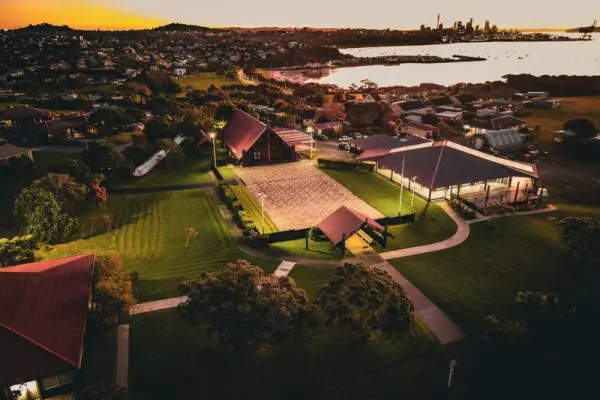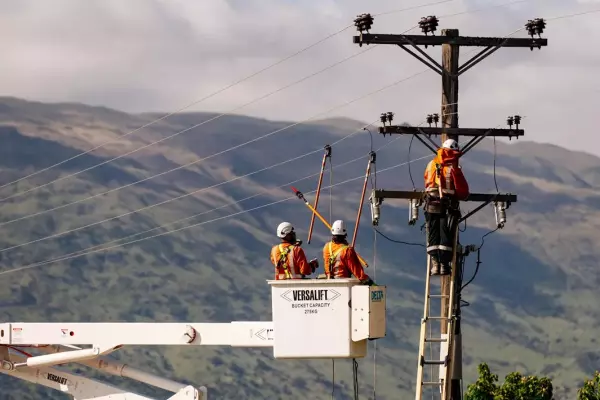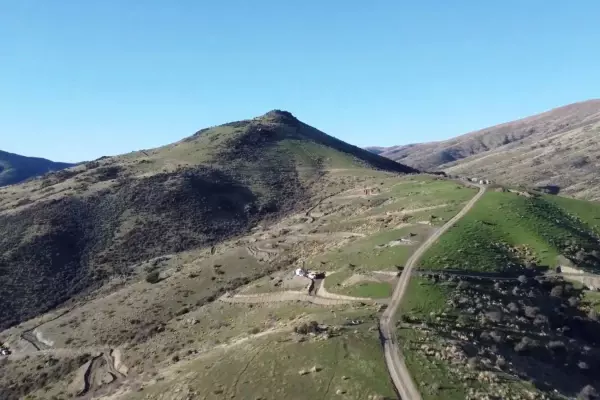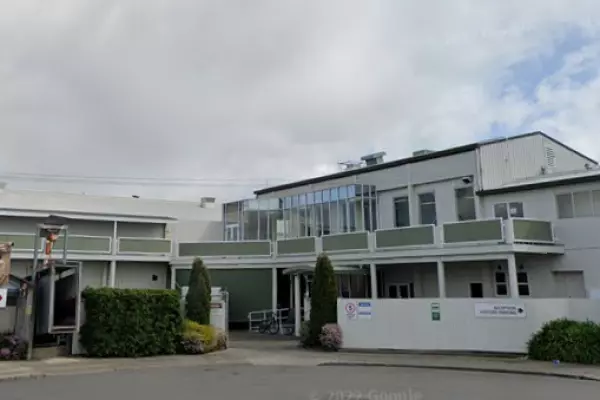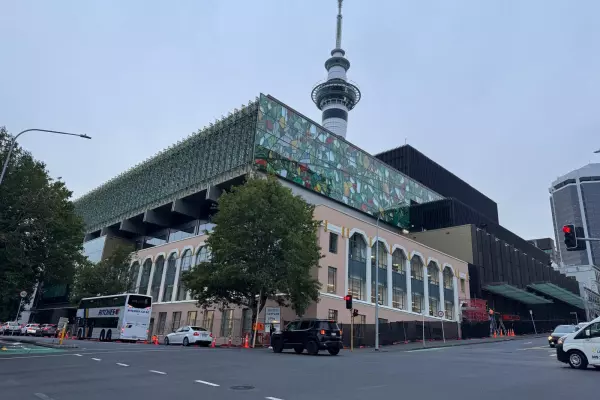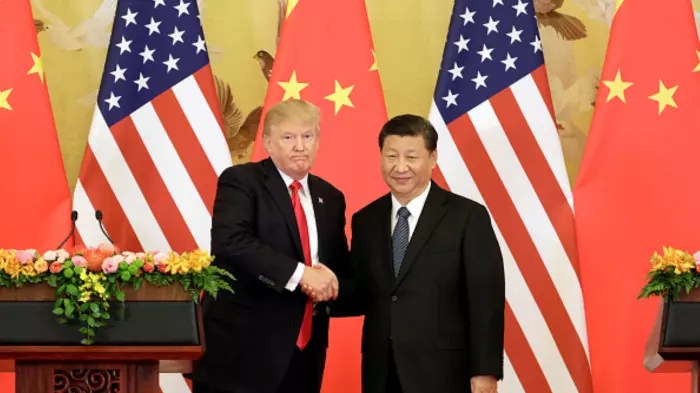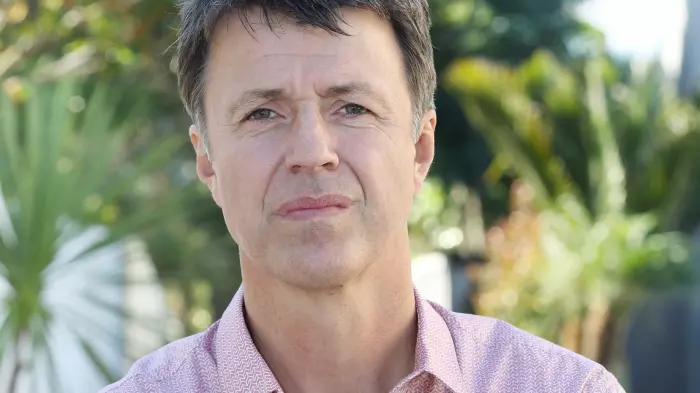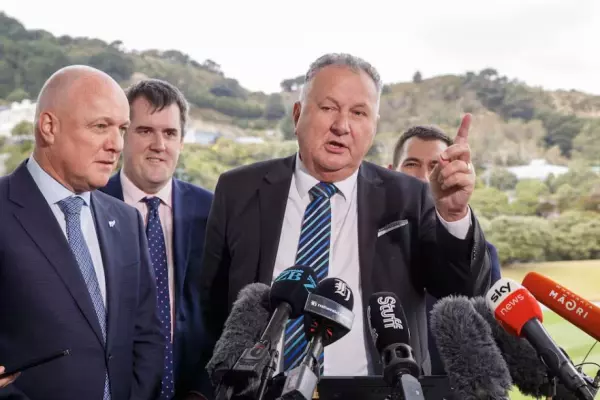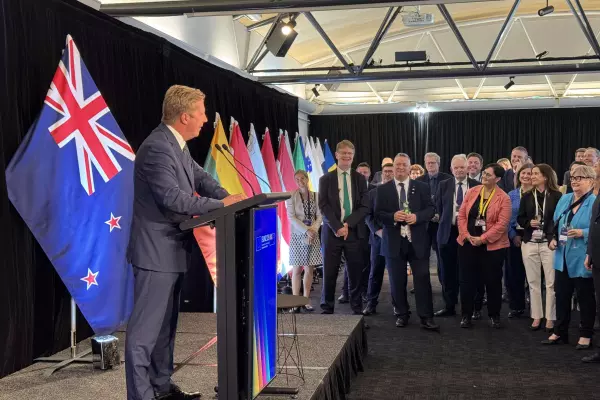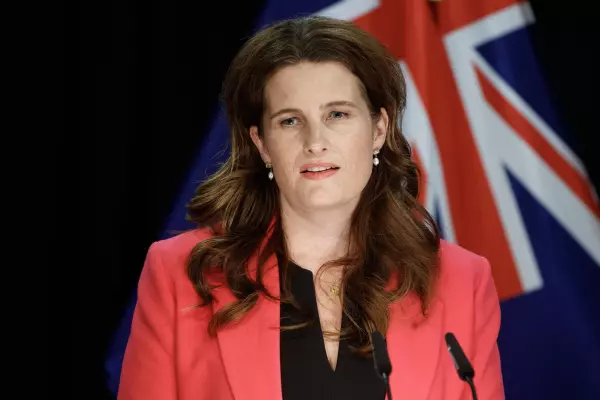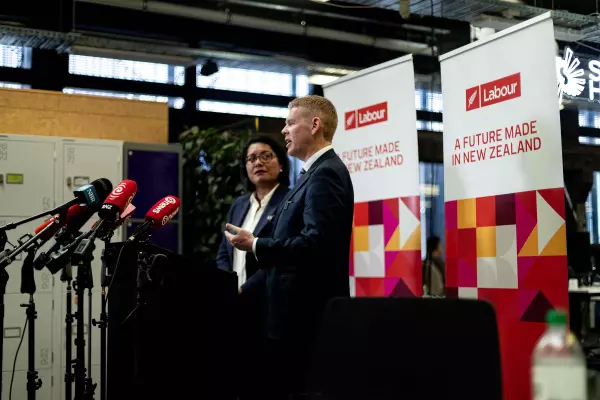On Monday a billboard sat in Wellington within eye line of many commuters who made their way over to parliament, it was emblazoned with the statement: “Māori have higher rates of unemployment than non-Māori”.
Alongside the billboard, the Whānau Ora Commissioning Agency printed the same poster on the front page of The Post.
The confronting move is the launching pad for a new Whānau Ora advertising campaign: "Our Future is Māori".
Whānau Ora's campaign has been several years in the making, and is supposed to catch the attention of lawmakers who have allegedly been underfunding the agency for years.
At a launch event on Monday at Event Cinemas in Henderson, Auckland, Whānau Ora commissioning agency for Te Ika a Maui (North Island) chief operating officer Awerangi Tamihere said real change was needed and whānau needed to be taken away from welfarism.
"Not one programme, not one service, not one sector, not one organisation can do it on its own because the issues facing us are complex."
At the same launch, Whānau Ora chair, Merepeka Raukawa-Tait acknowledged extra support for the organisation in the budget, with a caveat:
“It is a substantial amount – nearly $170 million – but it is certainly not enough.
“And it pales into significance when you compare it with what other organisations get to support our people when the outcomes are still pretty bloody abysmal.”
Raukawa-Tait, who ran for Te Pāti Māori in the 2020 election, said Whānau Ora had always believed the country’s future was Māori and there was more work to do now.
She said Māori were the solution; not the problem, and they were all getting the negative connotations associated with who they were, what they did and how they did it.
Māori, Raukawa-Tait said, needed to change the narrative and stand tall.
“Every day we have the opportunity to give our people hope, everyday you must say those things that uplift our people.
“We must never let anybody else determine our future.”
Political angles
Running the campaign so close to an election will inevitably raise political questions thanks to Whānau Ora's historic connection to TPM: Tariana Turia (a former TPM leader), Merepeka Raukawa-Tait (who ran on TPM's list last election) and John Tamihere are all pou (patrons) of the organisation.
The message of Māori self-determination would also seem to chime with TPM's values too.
However, TPM president John Tamihere, who is connected to the Whānau Ora Commissioning Agency through leading its covid-19 response, said he just wanted to see every Māori be a thriving, progressive, positive citizen of Aotearoa.
He was proud to whakapapa Māori and wanted to advance his whānau.
"I'm out in the open, everything I do is to advance my whānau – is that a conflict of interest?"
John Tamihere said the spotlight fell unfairly on the people behind Māori organisations and their affiliations.
"Just pretend I'm a farmer and I'm supporting a wellness programme for farmers, right?
"By and large, I'm a member of the federated farmers association therefore I must be a supporter of the National Party – no one asks them that, do they?"
John Tamihere said NZ was a democracy, and as such, citizens were allowed to practice politics without fear or favour.
He also believed far less scrutiny was placed on non-Māori institutions which had delivered far poorer outcomes.
"What should happen in the whole of the state sector, and everywhere, is that those who perform should be rewarded and those who do not, should not be rewarded.
"Clearly, there's millions and millions of dollars being spent on Māori by non-Māori and it's failing, so why do they continue to get paid when we're under a microscope all the time?
"We're being audited and reviewed - why not them?"
What is Whānau Ora?
Whānau Ora isn't one organisation, but three that carry the title of Whānau Ora commissioning agency. There is the Whānau Ora Commissioning Agency in the North Island, Te Pūtahitanga o Te Waipounamu in the South Island, and Pasifika Futures for all Pasfikia families across NZ.
Whānau ora became part of government policy in November 2002, when the Ministry of Health published a strategy for Māori health. In 2009, under John Key's National coalition government, a taskforce on whānau-centred initiatives presented a report to government, and a year later, Turia was appointed the minister. She was the co-leader of the Māori Party at the time.
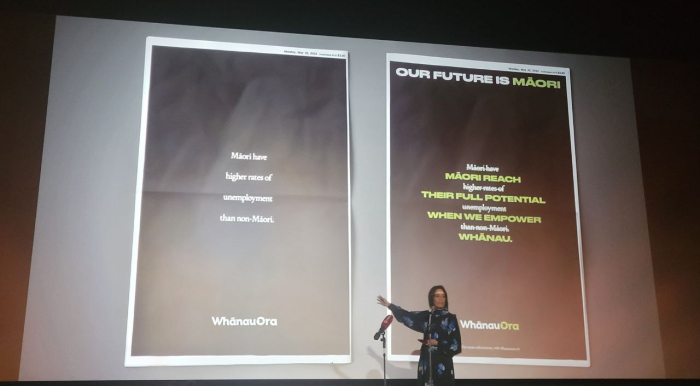 The new Whānau Ora campaign will be visible across billboards, bus stops, televisions ads and newspaper front pages. (Image: Tamara Poi-Ngawhika)
The new Whānau Ora campaign will be visible across billboards, bus stops, televisions ads and newspaper front pages. (Image: Tamara Poi-Ngawhika)
“Our future is Māori”
Awerangi Tamihere said a report on reducing child poverty outcomes was released from the agency recently, which highlighted belief coupled with aspiration were key determinants for whānau achieving enduring outcomes.
"For Māori, we also need to instil a sense of belief in themselves, a sense of aspiration that there is hope for the future.
"Unless you have hope and belief, it is very hard to take whānau on the journey of change, so they can go where they want to go."
The new campaign had been three years in the making and Tamihere said Whānau Ora was underfunded in favour of other agencies delivering services to Māori.
"This is a call to action, Māori have a very young population. We cannot wait, our young demographic will be the change.
“We know all too well that the historical and ongoing structural inequities sees Maori over-represented in several negative statistics in Aotearoa.
She said Whānau Ora providers were committed to reversing those numbers by supporting outcomes for Māori.
Awerangi Tamihere said the campaign was running everywhere.
"Ninety-five percent of the campaign is out in the community, the Te Araroa grocery store - it's grassroots."
She said a small portion of the campaign was targeted at decision-makers in Wellington.
"That is where agencies are that make the decisions on how they're going to invest in solutions for Māori."
When most of the money goes toward non-Māori for Māori, and still has the same result, we have to be proactive, she said.
"There is a campaign that is in Wellington, specifically targeted to that and although it's a small part, we can't forget it.
"Unless we change investment models and government models, we're going to keep getting the same result."
Funded by Whānau Ora, the campaign is visible across billboards, bus stops, and televisions across NZ.
It's about giving whānau resources to use their way, she said.
Minister for Whānau Ora Peeni Henare said the government is a believer in it, "hence why we have increased the budget by 145%".
"In my time as a Minister, I wanted to make sure that we had buy-in from other agencies for example, Ngā Tini Whetū and Paiheretia te Muka Tangata," he said, referring to the early intervention prototype and the corrections pathway programme.
The budget saw $64.44 million over four years to Ngā Tini Whetū because the kaupapa proved it was working to change whānau lives and giving them the tools to improve their health and prevent injuries, he said.
The funding for Ngā Tini Whetū will go to one of Whānau Ora's commissioning agencies and is a by Māori for Māori approach, he said.
The minister said Whānau Ora is about improving whānau wellbeing. It puts whānau at the centre of decision making and we all have a part to play in protecting the kaupapa, he said.
As well as supporting the Whānau Ora initiatives, the minister said that under the current government, Māori unemployed dropped to an "all-time low" from a 15.5% high during covid to 6.9% five months ago. He said these programmes were run through the Ministry of Social Development.
Henare also acknowledged Maori affairs minister Willie Jackson's recently announced $21.6m targeted at 1,210 young Māori who have extra barriers to employment because of potential links to criminal and/or gang affiliation.
"These programmes are designed to encourage Māori organisations to try different approaches to engaging and keeping Māori in employment-focused training opportunities."
Awerangi Tamihere said part of the campaign was filmed at Takitimu marae in Wairoa and the waiata (song) ‘Tutira Mai Nga Iwi’ (an arrangement performed by Kahurangi), will be on Spotify. All proceeds from the streaming platform will be donated to their recovery, she said.
"It's the beginning, not the end.
"If you can stand up proudly and say I'm part of this.
"If hope and belief are wrapped around with Māori based solutions, that is the gamechanger for us, that is the gamechanger for getting out of welfarism, that is the gamechanger for getting out of criminality.
"It takes time, it's a journey not a destination."


